‘The Opening of the Full-time Advanced Doctoral Programme Was a Gift from Fate for Me’
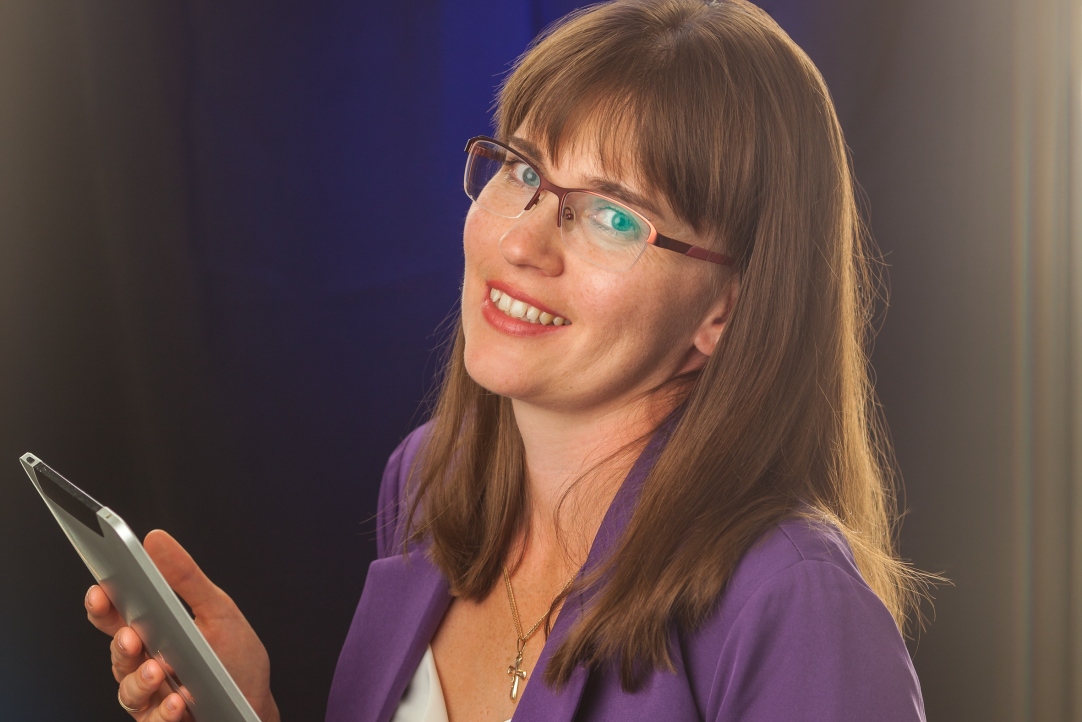
In 2010, HSE University launched the Full-time Advanced Doctoral Programme, an innovative programme for doctoral students at that time. At the beginning of 2021, an alumna of the programme’s first cohort became the first programme graduate to earn her Doctor of Sciences degree: Elena Vakulenko, Assistant Professor at HSE University’s Faculty of Economic Sciences. In an interview with HSE News Service, the professor discussed her academic career.
Professor Vakulenko, what did you want to be when you were a child? Did the idea of being a scholar appeal to you?
When I was a child, I wanted to be a maths or physics teacher. You could say that my dream has come true. I teach econometrics, which involves a lot of mathematics. I didn’t think about a career as a researcher at that time.
When did you first consider entering a doctoral programme?
When I was an undergraduate, I worked as an assistant at the Department of Mathematics in the Faculty of Economics with Fuad Aleskerov. I first considered a doctoral programme when I was helping to organise his lecture on writing and defending dissertations.
Soon there was an opportunity to try my hand as a researcher. Fuad Aleskerov offered me a maths problem to solve and said, ‘If you solve it, I'll take you on board!’ I solved it and became responsible for the econometric aspect in the ‘Teacher—Student’ Project of the HSE Academic Fund, as I was passionate about econometrics. I defended my Bachelor's thesis at the Department of Mathematical Economics and Econometrics, headed by Grigory Kantorovich.
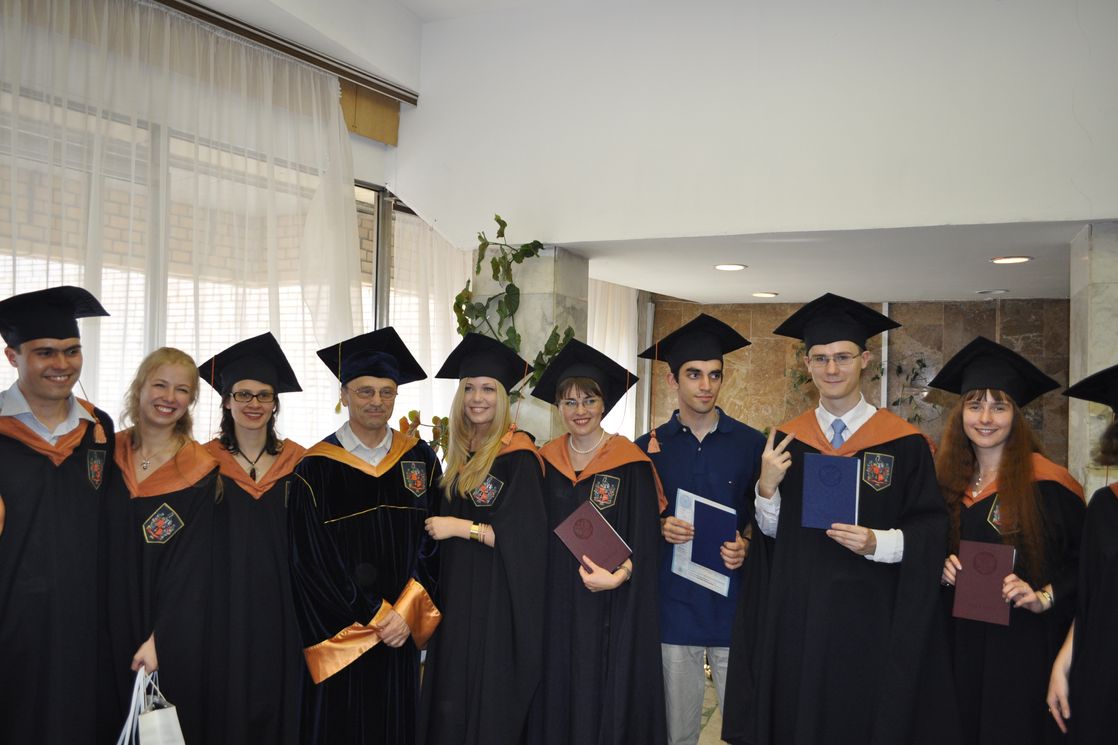
During my Master's studies, in addition to econometrics, I took up migration research. Since then, my research interests have been at the intersection of these two areas; my candidate of sciences dissertation was devoted to modelling migration flows at the regional, city, and municipal level, while my doctoral dissertation analysed the modelling of migration and labour markets in Russia.
Who, apart from Fuad Aleskerov, do you consider to be your teachers and mentors in the period before you finished your doctoral programme? What did you learn from them?
First and foremost was the late Emil Ershov, Professor at the Department of Mathematical Economics and Econometrics, one of the first tenured professors at HSE University. He taught me how to set research goals. Even without an in-depth understanding of a particular research topic, he always saw the essence of the problem. He had a lot of books in his office. When I asked him how to approach this or that problem, he would go to his book shelves, choose a few books, and, as it turned out later, they were the ones I needed.
My academic supervisor in my undergraduate and Doctoral programmes was Kirill Furmanov — a considerate and responsive person, only a few years older than me, and I was his first student. He was always ready to give me his attention — I could call him at any time. One of the very valuable skills I acquired thanks to him was programming. Now we work together in the Department of Applied Economics.
My mentor in migration studies was Nikita Mkrtchyan from the HSE Institute of Demography. When I was studying for my Master's degree, I went to this institute for a consultation, and he was recommended to me. That consultation, in fact, was the starting point of my dissertation project.
My Candidate of Sciences dissertation was supervised by Sergey Aivazian, who passed away a couple years ago. He worked as Deputy Director of the Central Economics and Mathematics Institute and was involved in the development of econometric approaches to analysing the quality and standard of living in the regions. The main thing he taught me was not to spread myself too thin and to set priorities.
Since 2008, I have taken part in an ARETT (Association of Russian Economic Think Tanks) university project for three consecutive years and interned with the Economic Expert Group, headed by Yevsey Gurvich. Since then, we have begun a fruitful collaboration. I am very grateful to Yevsey. I consider him to be my mentor and I’ve learned a lot from him.
During my doctoral studies, I was lucky enough to meet Sergei Guriev and work with him on a World Bank project. As a result, we conducted research on the problem of ‘poverty traps’ for internal migration in Russia. It is one of my most cited articles.
Why did you choose the Advanced Doctoral Programme? Was your choice influenced by a financial factor — the increased scholarship?
The stipend did not influence my decision. In both my undergraduate and graduate studies I pursued research and linked my further professional development to it. At that time, I did not think about money at all —I just wanted to do what I liked doing. If they also paid extra for it, who could refuse?
The launch of the Advanced Doctoral Programme was a gift from fate for me. For the first time in Russia, there was a doctoral programme that was structured in the same way as a Western-style PhD programme — a very serious educational component was implied, not just philosophy and foreign language, as it used to be in traditional doctoral programmes. My mentors suggested applying to foreign universities for a PhD, but I did not consider this option — I didn’t want to leave Russia for a long time. The Advanced Doctoral Programme at HSE University is in fact a viable alternative.
In addition to the usual entrance exams, you had to prepare a portfolio and go through an interview. There were no particular difficulties. In addition, they knew me quite well by then at the University — I had won the Student Research Paper Competition held by HSE University several times and received a ‘Golden HSE Award’ for my academic achievements.
Was the Advanced Doctoral Programme difficult?
Yes, there have even been cases of expulsion for failing exams. We were taught advanced economics courses by international professors and Russian colleagues with PhDs. During our studies, we discussed materials for our future theses and learned how to write articles for foreign journals. At the same time, I taught students econometrics.
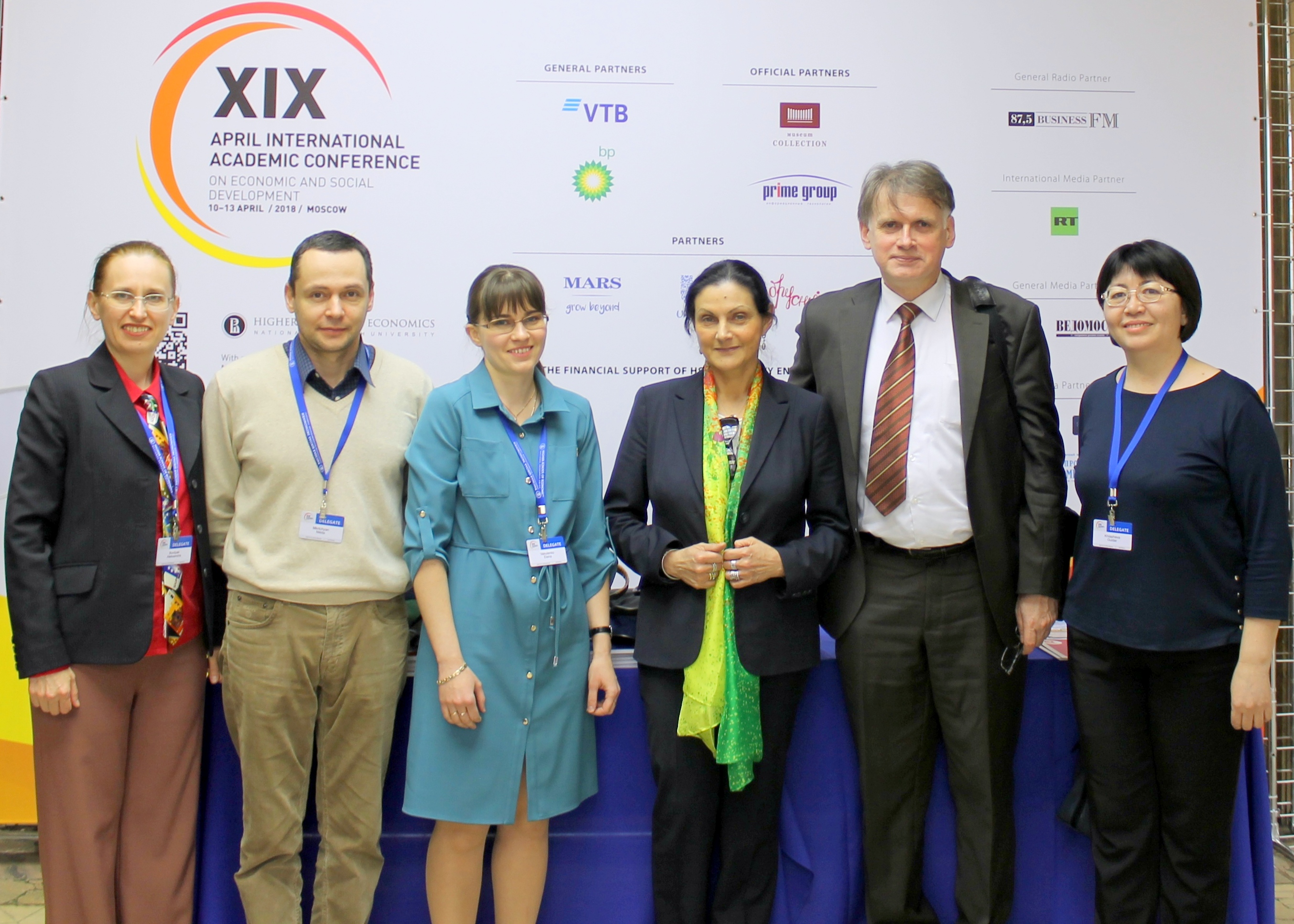
An interesting experience was the obligatory foreign internship — I had to find an academic supervisor at a foreign university myself and organise not just a study trip, but a six-month study, mastering part of the educational programme. And it so happened that at the April conference I met Professor Christian Seidl from Germany, whom I had met back in my undergraduate days, and he helped me organise everything. And so I became a PhD student at the University of Kiel (Christian-Albrechts-Universität zu Kiel) in the PhD programme in mathematical methods in economics for six months.
Particularly memorable was the research seminar that my German academic supervisor, Johannes Broeker, head of the Institute for Regional Research at Kiel University, organised for his PhD students from different countries. Each PhD student talked about their research, then everyone discussed each other's work. At that seminar I first learned about spatial econometrics, a new branch of science at the intersection of econometrics and regional economics, which I later began to study seriously. That seminar was held in the village of Tellow at the memorial museum of Johann Heinrich von Thünen, the famous German economist, and we were also told about his life and contribution to science.
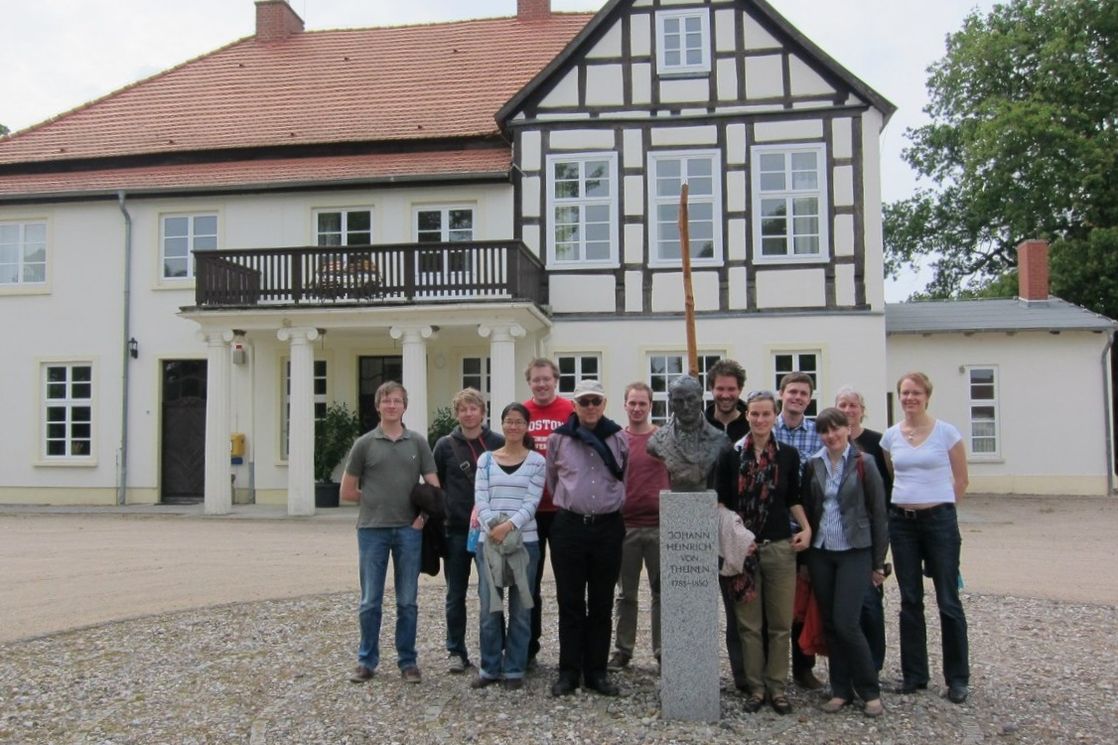
Did you manage to defend your dissertation on schedule?
Yes, even before I finished the programme.
How did your research and teaching career develop further?
There have been a lot of interesting points along the way.
Of course, I taught — one could say I fulfilled a childhood dream. Last year, I recorded my first online course — it was a real video production, a very interesting experience. The course is about quantitative methods in economics; it is based on real cases and is intended for students from fields unrelated to economics.
I also participated in academic development programmes for HSE University employees — I joined the young faculty development programme as a future lecturer, as a new lecturer. The most important thing I have gained here is the opportunity to network with colleagues from different faculties. This was very helpful in developing interdisciplinary links — for example, in developing materials for teaching mathematical methods to students from different faculties. Many of those we met then are now in administrative positions — Denis Stukal is now Deputy Dean of the Faculty of Social Sciences, and Tatiana Khavenson is now Director of the Department of Educational Programmes at the Institute of Education.
I’ve also gotten administrative experience: I was responsible for creating and implementing a professional development programme in macroeconomics and econometrics for Central Bank employees. Of course, I also did a lot of research — for example, I participated in a large project ‘Macroeconomic Research Mechanisms of the Russian Labour Market’ together with Evsey Gurvich. The project ended with a collective volume, and my work on that project amounted to half of my PhD thesis. I participated in several World Bank projects, as well as in a two-year Russian—Italian project to study youth unemployment, led by Olga Demidova.
The University has given me many opportunities to participate in international conferences, summer schools, and internships by funding these trips. I gained a wealth of research experience and made professional contacts. At one of these conferences, I met my future co-author, a colleague from Austria, Sascha Sardadvar. We then wrote many joint papers on population migration models and spatial effects and we still collaborate to this day.
At what point did you think about receiving a Doctor of Sciences degree?
I made the decision to write a Doctor of Science dissertation three years ago. Svetlana Avdasheva, head of the Department of Applied Economics and co-chair of the Dissertation Council in Economics, played a key role here. She shared her experience and convinced me that a PhD was not that difficult. It turned out that at the time I only had two articles without co-authors to be defended on the basis of the cumulative number of publications.
What distinguishes your research from other studies in your field? There are very high standards for dissertations at HSE University.
My works focuses on developing tools to explain internal migration flows in Russia as well as macroeconomic mechanisms of the Russian labour market.
Some of my work is devoted to the development of spatial econometrics approaches, which allows you to take into account the relationships between objects under study, such as the impact of one region on another, and this is important for the analysis of regional economies. In my research I show the importance of taking these relationships into account because otherwise there are significant shifts in the coefficients, which lead to erroneous, even contradictory results.
The chairman of my dissertation committee, Anatoly Peresetsky, a research professor at HSE University, said that he considered me an expert in spatial econometrics, and I was very flattered by this.
Have you had time for your personal life, your family, all these years?
I took maternity leave twice during the year and a half between my Candidate of Sciences and Doctor of Science dissertations, while continuing to conduct research. I am very grateful to my family, my husband, and my parents, who always support me in all my endeavours.
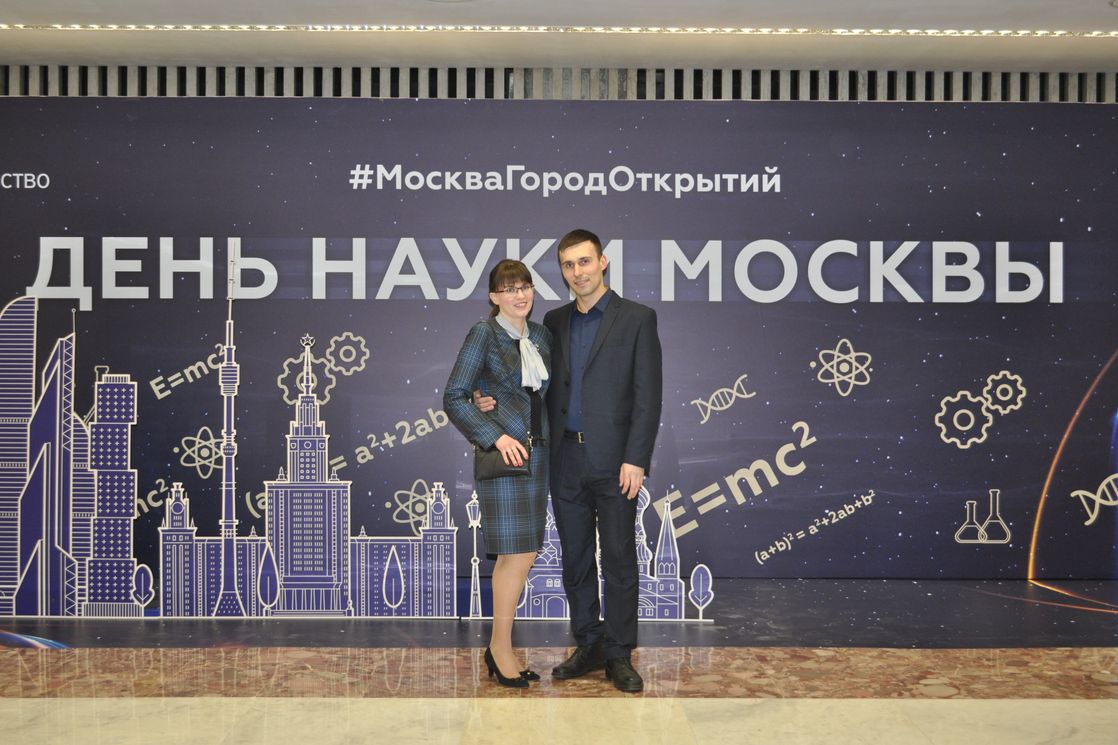
Your studies, teaching, and research are linked to only one university. It is considered that this route — academic inbreeding — is not optimal for a researcher. Do you agree with this?
Of course, inbreeding is bad. But my case is atypical. I received my higher education at HSE University, but I did my professional development and internships at other universities. I worked with more experienced colleagues from outside HSE University and wrote many articles together with them, so a very important part of my professional development took place outside my Alma Mater.
What do you plan to do after the defence?
I will teach. I recently became the academic supervisor of the new Master's programme ‘Economic Analysis’, which is run entirely online. It consists of three tracks: ‘Macroeconomics’, ‘Companies, Markets and the Public Sector’, and ‘Instrumental Methods in Economics’. As the content developer of the programme, I am responsible for the third track — after all, my entire journey from my third year to my PhD was built on mathematical methods for economic analysis.
I will continue to work in the academic talent pool as a mentor — I will continue to informally explain to young colleagues how to build an academic career at HSE University, what journals to publish in, and so on.
And, of course, I will continue my research work, including that which I conduct with my students.
Do young colleagues have more opportunities for academic development now than you did ten years ago?
We were pioneers, and the mechanisms we experienced have now become the established norm. The Advanced Doctoral Programme is now much more in-depth, inter-university links are better developed, and the heads of doctoral schools now help to organise internships. This year there is a combined ‘Master's – PhD programme’ track: you can get a taste of what an academic career is like while you’re a student and do more in-depth research by starting it during your Master's studies.
Digital technology offers new opportunities — you can study with the best professors from abroad without having to leave the country.
What qualities do you think are necessary for someone who wants to engage in research seriously?
The most important quality is curiosity. If someone has a passion for observation, an interest in what is going on around them, and a desire to learn all the time, then their chances of becoming a successful researcher are high. Today, researchers have many opportunities to satisfy their curiosity and the resources to do so are much easier to find than ten, much less twenty, years ago, when science was funded in a very different way.
Another important quality is to try to think outside the box while always looking for new, unconventional solutions — a valuable skill that has come in handy for me personally in life.
See also:
‘Employers Know That HSE Graduates are Well-Prepared, Analytical, and Adaptable’
Warda Tariq, from Pakistan, completed her Master’s in Data Science at HSE University–Moscow in 2024. She is now undertaking a PhD at the Faculty of Computer Science while working remotely as an AI/ML developer. Warda spoke to the HSE News Service about blending theory and practice, what an HSE education provides apart from academic knowledge, and her advice for making the most of university.
‘Start Working on Your Articles from the Very Beginning of Your PhD’
Andrés Castañón Rincón, from Spain, is a doctoral student at the HSE School of Philosophy and Cultural Studies in Moscow working on the history of Soviet Marxism philosophy. In his interview with the HSE News Service, he explains why studying Soviet Marxism is relevant today, talks about the advantages and challenges of his work in Moscow as an international researcher, and gives some advice to beginner PhD students.
‘Education is the Mother of all Disciplines’
Moses Oluoke Omopekunola, from Nigeria, is a second-year student of the Science of Learning and Assessment (SOLA) programme. Intent on pursuing a career in psychometrics, he has already joined the PhD programme in Education to deepen his knowledge of the theory and methodology of learning. In this interview with the HSE News Service, Moses explains how his master’s programme aligns with his future plans, recalls the challenges he has faced, and shares the most valuable lessons he has learned so far.
Russian and Chinese Scholars Share Experience of Transformation of Doctoral Education
The Russian and Chinese postgraduate education systems originally borrowed their institutional frameworks from the Soviet Union. However, in the 21st century, they have evolved along different paths. While key performance indicators for postgraduate programmes in Russia are declining, China is seeing a rapid increase in the number of postgraduate students. These contrasting trajectories and the reforms undertaken in each country in recent decades were the focus of a roundtable discussion held as part of the 25th Yasin (April) International Academic Conference.
Doctoral Student Explores the Challenges Faced by International PhD Seekers During the Pandemic
In late June 2024, a pre-defence of Nurudeen Abdul-Rahaman’s dissertation took place at the HSE Institute of Education. Nurudeen Abdul-Rahaman, a doctoral student from Ghana, has presented his dissertation ‘Academic and Social Integration of Foreign Doctoral Students at Russian Universities during the Covid-19 Pandemic’ for the degree of Candidate of Sciences in Education (PhD).The HSE News Service spoke with Nurudeen as well as his academic supervisor, Evgeniy Terentev, Director of the Institute of Education, about their extensive research on international doctoral students in Russia and Nurudeen's contribution to this research.
‘We Cannot Understand the Modern Ideological Confrontation without the Accusations that Emerged during the Lausanne Process’
Rainer Matos Franco, from Mexico, defended his PhD thesis with honours at HSE University this June. In his dissertation, Rainer Matos Franco examines the history of anticommunism in Europe during the 1920s. The HSE News Service spoke with Rainer and his academic supervisor, Tatiana Borisova, about the significance of the Lausanne Process for the Cold War and contemporary history, the opportunities provided by HSE University for international PhD candidates, and the challenges of working with a vast database of historical sources.
‘I Am Able to Tell My Students Things That I Always Wanted to Tell People in Russia’
Ana Livia Araujo Esteves, from Sao Paulo, Brazil, is a journalist, a third-year doctoral student of International Relations, and visiting lecturer at the HSE School of International Regional Studies. In her interview for the HSE News Service, she speaks about her motivation to carry out research and teach students in Russia, shares some tips for people from Latin America living in Moscow, and talks about why a dog can be a reason to stay in Russia for just a bit longer.
Zaruhi Hakobyan Shortlisted for HSE Alumni Awards
Zaruhi Hakobyan, master’s graduate of the HSE University Faculty of Economic Sciences and research scientist at the University of Luxembourg, is involved not only in research but also in organising academic events for young scientists and students. As a foreign graduate of HSE University, Zaruhi was nominated for the HSE Alumni Awards ‘for her tireless enthusiasm in popularising economic science, teaching, and research at the international level’ and made the shortlist.
‘Studying at HSE Was a Chance for Me to Get to Know Some Supportive Seniors, Knowledgeable Professors, and Wonderful Friends’
On August 4, 2023, a pre-defence of the thesis on ‘Refugee-Host Community Conflict over Assimilation, Integration, and State Legitimacy: The Case of Rohingyas in Bangladesh’ by Md. Reza Habib will be held at HSE University. The preliminary defence will take place at a joint meeting of the HSE School of Sociology and the International Laboratory for Social Integration Research. Md. Reza Habib shared his experience of studying and preparing his PhD with the HSE News Service.
‘At HSE University, We Receive Substantial Support for Our Research’
Wenrui Zhang, from China, is a recent graduate of theMaster’s in Economics and Economic Policy at the HSE UniversityFaculty of Economic Sciences. Having successfully defended his master’s thesis on the impact of COVID-19 on the incomes of vulnerable groups, Wenrui has set his sights on publishing his research and enrolling in adoctoral programme at the university. The HSE News Service interviewed Wenrui about his achievements so far and his goals for the future, and also spoke to Prof.Elena Kotyrlo, his academic supervisor.


